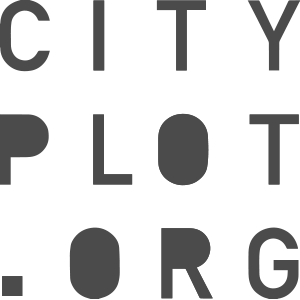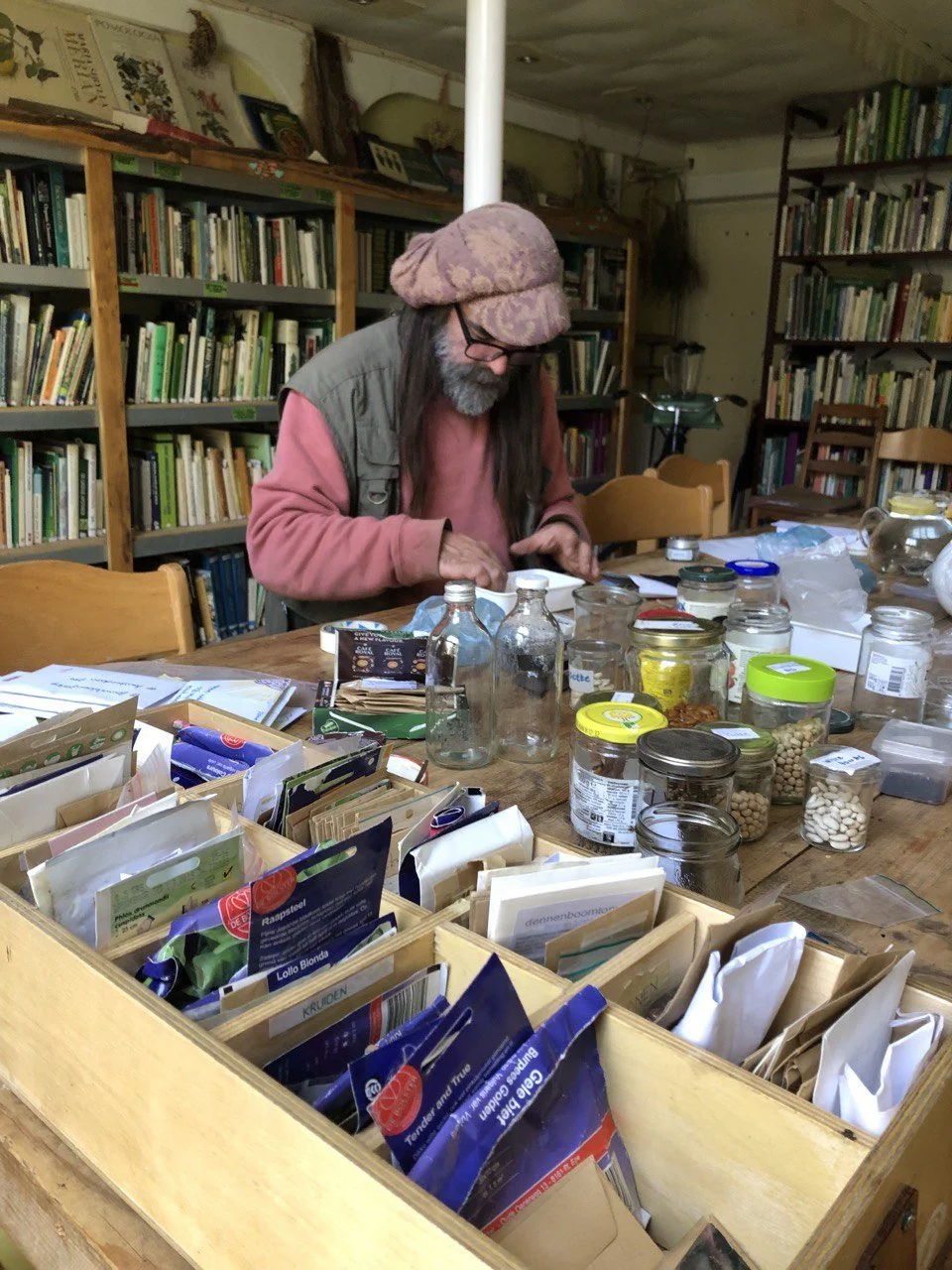Seed sovereignty -1
FREE the SEED! (part one)
Two local seed-related initiatives and a beginner’s guide to your first season of seed saving
Seed saving at any scale is a practice that makes the aspiration towards “seed sovereignty” a concrete experience. In a world where the global food system often feels too big, too horrific and too complex to tackle, the tangible experience of planting seeds you’ve saved yourself can make things feel a little more…within reach. It’s a practice that can stimulate your imagination and create a sense of potentiality, as well as a way to build skills that can support a robust, local and ethical food system. For that reason, this piece is composed of two parts. Part one centres and invites all readers to participate in two local initiatives that engage with seeds and seed saving in Amsterdam, where I live and work. These initiatives make clear that seeds play a key ecological, social and political role in building a more life-affirming world, and are a good way to connect with the broader movement of seed-loving people in Amsterdam. The second part is a beginners how-to guide to orient your first season of seed saving - not comprehensive by any means, but a starting point. Enjoy!
Art prints I made with hand-made paper from recycled materials
Reclaim the Seeds, Reclaim Life
The first shout out is to Reclaim the Seeds (RtS), an annual seed and food sovereignty festival that takes place throughout the Netherlands each spring. In 2025, Reclaim the Seeds Amsterdam was two days of programmed workshops, lectures and activities, as well as a market of seed savers, local producers and initiatives related to agroecology, permaculture, nature-craft and regenerative practices. Thousands of people attended over the two days. All this was hosted by dedicated organisers and volunteers in the beautiful orchards of the Fruittuin van West. Having just moved (back) to the Netherlands myself, volunteering for Reclaim the Seeds Amsterdam was an incredible way to meet the many faces behind this city's somewhat hidden but vibrant, and growing, network of regenerative initiatives.
“Reclaiming seeds is not just
about agricultural practices, but an
act of resistance in the name of all
people who eat.”
Looking back at the programme, it’s remarkable how much ground the festival covered. Participants were equally invited to learn seed saving basics, engage with Amsterdam’s food landscape and learn about peat-free soils, as well as research themes of coloniality and power in the global food system, activism through food autonomy and solidarity with Palestinian farmers in the face of ongoing genocide. Without losing the centrality and the concrete practice of seed saving and food growing, Reclaim the Seeds opened the space for seed as a relevant political and social arena to reclaim “the Right to Life”.
In the words of organisers Lucienne and Emma, who represent the collective wisdom of all those who made RtS Amsterdam possible, “reclaiming seeds is not just about agricultural practices, but an act of resistance in the name of all people who eat”.
Upcycled clothing for Reclaim the Seeds Amsterdam. Textile prints (t-shirts, patches) were a collective process!
The struggle for seed sovereignty is embedded in the wider context of a capitalist food system. Seed laws, intellectual property rights, patents and genetically modified organisms transform seed from a shared commons into a commodity under the control and monopoly of giant agro-corporations. These new forms of control criminalise age-old practices of seed breeding, saving and sharing; people everywhere are losing their right to have sovereign growing practices. Although there are long traditions of farmers, Indigenous People and food growers everywhere saving and exchanging local seed, recent decades have shown a massive shift to buying commercial seed each year. This means we lose seed and food autonomy, locally adapted seed varieties and diversity, and ultimately, the health and resilience of our ecosystems and social web.
Moreover, there is an economic monopoly that controls the commercial seed market - the same six multinationals control 75% of all private sector plant breeding research, 60% of the commercial seed market and 76% of global agrochemical sales (numbers from ETC Group). Commercial seed packets promise higher yields or pest resistance by including petro-chemical companions to hybrid seeds, bolstering sales while systemising cycles of debt and compounding poverty. This monopoly creates an unprecedented vulnerability in the world food system and literally puts our food in the hands of for-profit capitalists that couldn’t care less about the people let alone the web of life and the Earth that sustains it.
In this context, Reclaim the Seeds is a place to grow the movement that encourages people to meet their basic needs autonomously, without relying on distant, vulnerable and exploitative supply chains. And seeds are centered as the key to this struggle. In the words of Vandana Shiva, grandmother of the global seed-movement, “seeds are the key to democracy and food sovereignty in our times”.
Gardener and steward Eelco sorting seeds left over from the Reclaim the Seeds Amsterdam seed exchange table, at the MoTuin garden at Tugelaweg85, Amsterdam Oost.
For further reading, this report from ETC Group is a crucial, albeit terrifying, insight into the realities of seed monopoly and its impacts on food autonomy. To dive into the (non)viability of industrial agriculture and the role of small-scale farming, read their super accessible report “Who Will Feed Us?” (2017). Finally, Navdanya - Vandana Shiva’s non-profit “Earth Centric, Women Centric and Farmer-led movement for the Protection of Biological and Cultural Diversity” - is too good not to share.
And it’s never too early to mark your agenda - Reclaim the Seeds will be back in the spring of 2026!
Zonnebloem Protest: Set Amsterdam in bloom
The next initiative I would like to mention is the Zonnebloem Protest on May 24th. Members of this collectively-led protest were also present at Reclaim the Seeds Amsterdam, and led a seed workshop where participants sorted viable seeds from dried sunflower heads that were grown and harvested in the nearby Lutkemeerpolder in 2024. In 2025, these seeds will set Amsterdam in bloom with hundreds, if not thousands, of sunflowers.
The Zonnebloem Protest is a city-wide action initiated by Voedselpark Amsterdam, where community gardens and residents in every postal code have come together to sort, sow and sprout seeds saved from sunflowers grown on the Lutkemeerpolder in Amsterdam West. In May, these seedlings will take root in as many places as possible. Tall, unapologetic sunflowers will interrupt street corners, front gardens, pots in window sills and balconies, community gardens, and all the finely manicured green spaces of Amsterdam. They will be asking: how do we want Amsterdam to bloom?
The action is a material and symbolic way of linking the long fight to protect the last fertile soils of Amsterdam in the Lutkemeerpolder to the rights of Amsterdammers to determine how they want to live in their city. If fertile ground is literally and figuratively bulldozed by for-profit investment companies, where and with what seeds will we bloom?
The fight to protect these historic agricultural lands from being turned into a business park and distribution centre is both an inspiring and heart-wrenching story. And while construction of “Business Park Amsterdam Osdorp” is already underway, the struggle is ongoing and not in vain. The local farmers, Voedselpark Amsterdam, the people behind the “Save Lutkemeer” and “Save Our Green” campaigns and other local actors managed to secure land in the polder that will continue to be cared for - care that encompasses the whole web of life, from the soil to all the folk who are in some way nourished by these fields. That loving work continues, with or without the help of the Amsterdam city council. That’s the force, the grief and the joy behind each sunflower that will set Amsterdam in bloom this year.
The Zonnebloem Protest puts in practice part of the political and social relevance of seeds and seed saving and in a symbolic but also material way. To save seeds and plant them throughout the city is a form of reclaiming space and a reminder of our right to the city. It is also a reminder that we are part of a living web, where we need each other as much as the intelligence of a single seed, to sprout and grow and spread resistance to top-down developments like those at the Lutkemeerpolder, as well as all the possibilities of living well together in this city and on this Earth.
To participate, find out who is spreading sunflower seeds and seedlings in your neighbourhood and sow the question “what do you want to bloom in this city?” all through your neighbourhood!
by Kalliope Bournia
“I've been learning, working and growing through Permaculture and Somatic practices for most of my adult life and hope to continue doing so for the rest of it!”





